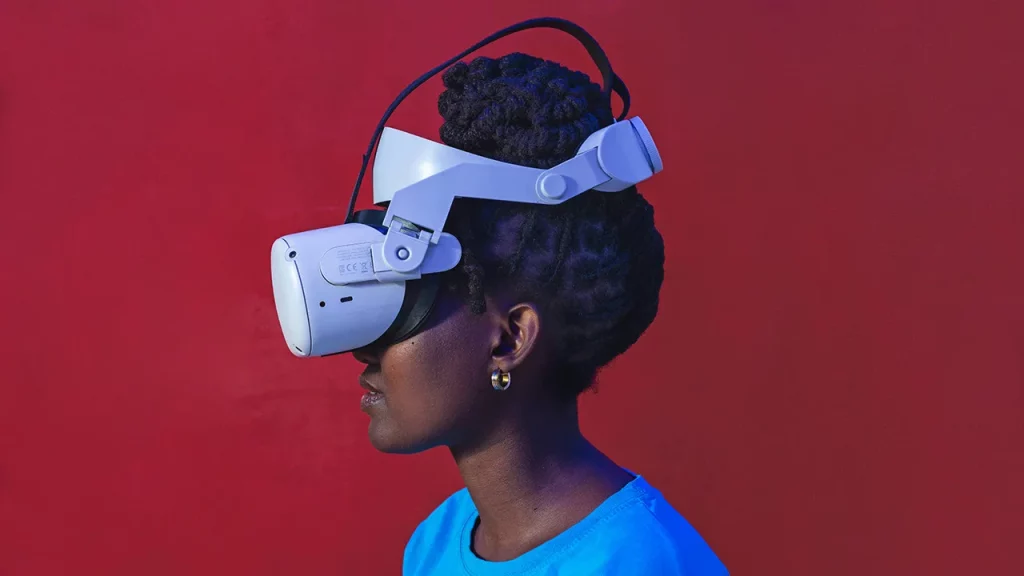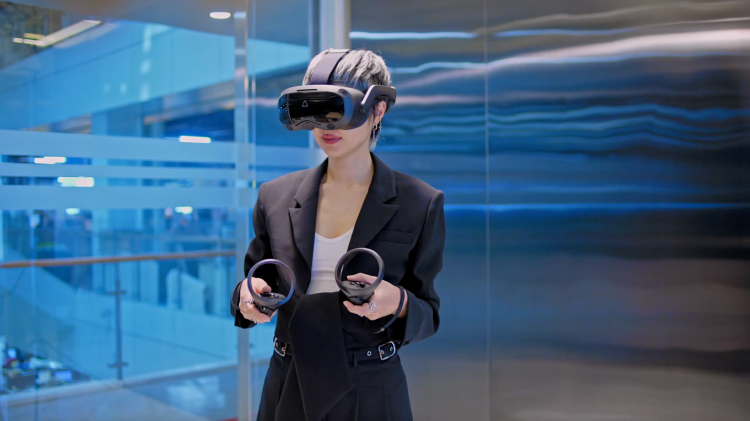Introduction: Current Status of Virtual Reality Technology and Its Progress Toward Full Immersion
Virtual Reality (VR) technology has come a long way since its initial inception. Over the past few decades, VR has evolved from being a niche technology used for research and specialized applications to an increasingly mainstream medium for entertainment, education, and industry. The concept of fully immersive virtual reality, where users are not only able to interact with virtual environments but feel as though they are truly “inside” those environments, is fast becoming a reality. However, while VR has made significant strides, it still faces numerous challenges before we can achieve a fully immersive experience.
This article explores the current state of VR, examining the technological advancements that have been made, the applications that VR is being used for today, and the challenges that still need to be overcome. We will explore how close we are to achieving true full immersion and what the future holds for this groundbreaking technology.
Technological Advancements: VR Headsets, Motion Tracking, and Haptic Feedback Systems
The journey toward fully immersive VR requires advancements in several key areas, including the hardware used to deliver the experience, the accuracy of motion tracking, and the systems that provide feedback to users. These components are integral to creating the sensation that users are truly present in a virtual environment.
- VR Headsets
The development of VR headsets has been one of the most significant milestones in the progress toward full immersion. Early VR systems were bulky and had limited graphical capabilities, often leading to a disjointed experience that could cause discomfort. However, the introduction of more advanced VR headsets, such as the Oculus Quest 2, HTC Vive Pro, and PlayStation VR, has marked a major leap forward in terms of portability, resolution, and ease of use.
Modern VR headsets come equipped with high-definition displays, wide fields of view, and high refresh rates, which help reduce motion sickness and create a more natural, immersive experience. The Oculus Quest, for example, offers wireless operation, meaning users are no longer tethered to a computer, which provides more freedom of movement. These technological improvements have brought us closer to achieving true immersion, though the ideal VR headset would require ultra-high resolution, perfect color accuracy, and a virtually seamless connection to the user’s environment.
- Motion Tracking and Gestural Control
To enhance immersion, VR systems need to accurately track the user’s movements and translate them into the virtual world. Motion tracking technology has made significant progress, with devices like the Oculus Rift and HTC Vive offering highly responsive tracking systems that capture the movement of the user’s hands, body, and even head with great precision.
Motion controllers, such as those used in the Oculus Quest or Valve Index, are designed to replicate the user’s hand movements, allowing them to interact with the virtual world by grasping, throwing, or pointing. For full immersion, however, tracking technology must go beyond simple hand gestures to include subtle movements like eye tracking, finger movements, and full-body tracking. This will allow users to feel fully integrated into their virtual environment and interact with it in the most natural way possible.
- Haptic Feedback Systems
One of the most exciting advancements in VR technology is the development of haptic feedback systems. These systems simulate the sense of touch, allowing users to “feel” objects and actions in the virtual world. For example, haptic gloves or vests can simulate sensations like texture, pressure, and temperature, providing a more tactile, immersive experience.
The Haptic Suit by Teslasuit is a prime example of this technology, providing full-body haptic feedback through an array of sensors that deliver sensations such as vibration, heat, and force. Similarly, VR gloves like those from HaptX are able to simulate the sense of touch by using pneumatic actuators to create physical resistance, making it possible for users to feel the shape, texture, and weight of virtual objects.
While these systems are still in their infancy, they represent a major leap forward in making VR feel more realistic and immersive. In the future, we could see haptic feedback systems that provide even more nuanced sensations, such as wind, water, or even the feeling of a heartbeat, all of which will bring us closer to achieving the goal of full immersion.
Applications: VR in Gaming, Education, Training, and Therapeutic Treatments
While VR is best known for its applications in gaming and entertainment, its potential extends far beyond these realms. In fact, many industries are already exploring how VR can be used to enhance training, education, and even healthcare.
- Gaming and Entertainment
Gaming is arguably the most widely recognized application of VR, and it is also where the technology has made the most significant progress. VR games allow players to step inside fully realized worlds, where they can move freely, interact with objects, and engage in dynamic, immersive gameplay. Popular VR titles such as Beat Saber, Half-Life: Alyx, and The Walking Dead: Saints and Sinners are pushing the boundaries of what is possible in terms of immersion, offering players a more lifelike and engaging experience.
However, to achieve true full immersion, VR gaming must overcome a few hurdles. These include increasing the realism of virtual environments, improving player interaction, and addressing issues like motion sickness, which can detract from the experience.
- Education
VR is also being used as an educational tool, offering students immersive learning experiences that would be impossible in a traditional classroom. VR enables virtual field trips to historical sites, interactive science experiments, and even immersive medical training, where students can practice surgery or diagnose patients in a virtual setting.
For instance, ClassVR offers a suite of educational VR applications, allowing students to explore concepts like biology, physics, and geography through immersive 3D models. Virtual reality can also be used to train employees in industries like aviation and manufacturing, where real-world training can be expensive and dangerous. The ability to practice complex procedures in a virtual space is a game-changer for both education and professional development.

- Training and Simulation
Virtual reality has also found a significant niche in professional training. Military, aviation, and healthcare organizations have embraced VR as a safe and cost-effective way to train personnel in high-risk environments. VR simulations can replicate scenarios like flying an aircraft, disarming a bomb, or performing surgery without putting anyone in harm’s way.
For example, the U.S. military uses VR to train soldiers in combat situations, providing them with the opportunity to practice tactics and procedures in a virtual environment. Similarly, companies like CAE Healthcare are using VR to train medical professionals, allowing them to practice surgeries and procedures in a risk-free environment.
- Therapeutic Treatments
In healthcare, VR has shown great promise as a therapeutic tool. Virtual reality has been used to treat conditions like anxiety, post-traumatic stress disorder (PTSD), and chronic pain. By immersing patients in calming virtual environments or exposing them to controlled simulations of stressful situations, VR can help with cognitive behavioral therapy, exposure therapy, and pain management.
For example, VR exposure therapy has been used to help veterans cope with PTSD by recreating combat scenarios in a controlled setting, allowing them to confront their trauma in a safe and supervised way. Additionally, VR is being used to help with rehabilitation, enabling patients to regain mobility and strength after injury or surgery by performing exercises in a virtual world that simulates real-world scenarios.
Challenges: Hardware Limitations, Content Creation, and User Comfort
While VR has made significant strides, there are still several challenges to overcome before we can achieve fully immersive virtual reality.
- Hardware Limitations
Despite the impressive advancements in VR hardware, there are still several barriers to creating fully immersive experiences. For example, current VR headsets still have relatively low resolution compared to the human eye, and the field of view (FOV) is not yet wide enough to replicate human vision accurately. Additionally, there are still issues with weight and comfort, as many VR headsets are bulky and can cause discomfort during extended use.
Battery life is another limitation. VR headsets require significant power to operate, and many devices can only be used for a few hours before needing to be recharged. Future developments in lightweight materials, battery efficiency, and display technology will be critical to making VR more immersive and comfortable for users.
- Content Creation
Creating compelling, immersive content for VR is a complex and resource-intensive process. Unlike traditional media, VR content needs to account for 360-degree environments, interactive elements, and real-time user input. This makes the creation of high-quality VR experiences more challenging and expensive than producing standard video games or films.
Furthermore, VR content needs to be optimized for performance, ensuring that it runs smoothly and without lag. The development of content creation tools that make it easier for designers to build immersive worlds and experiences will be crucial to the widespread adoption of VR.
- User Comfort
While VR has made great strides in improving user comfort, motion sickness remains a common issue for many users. The phenomenon of motion sickness occurs when there is a disconnect between the user’s physical movement and the movement they perceive in the virtual world. To alleviate this, VR headsets and applications need to be optimized for smoother motion tracking, higher frame rates, and better synchronization between physical and virtual movements.
Conclusion: Fully Immersive VR Is on the Horizon, but Achieving Seamless Immersion Requires Solving a Variety of Technical Issues
Virtual reality has already made significant strides toward full immersion, and the future looks promising. With advancements in VR headsets, motion tracking, haptic feedback systems, and content creation tools, we are getting closer to experiencing a fully immersive virtual world. However, there are still significant challenges to overcome, including hardware limitations, content creation complexities, and user comfort issues.
In the coming years, we can expect continued progress in VR technology. As we address these challenges, VR has the potential to revolutionize industries ranging from gaming and education to healthcare and professional training. While fully immersive virtual reality may not be here just yet, it is closer than ever before, and the future of VR looks incredibly bright.











































Discussion about this post